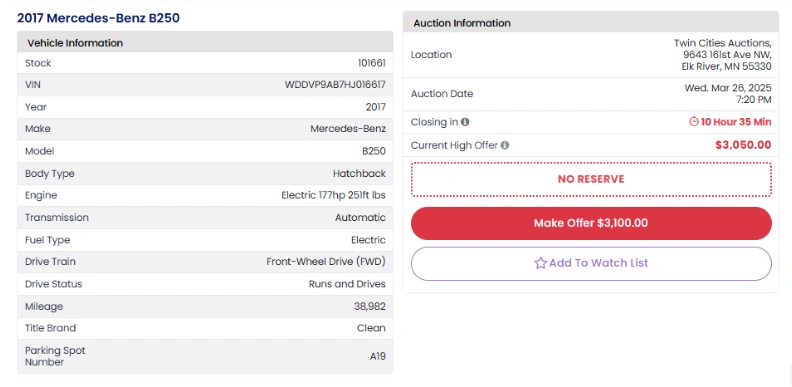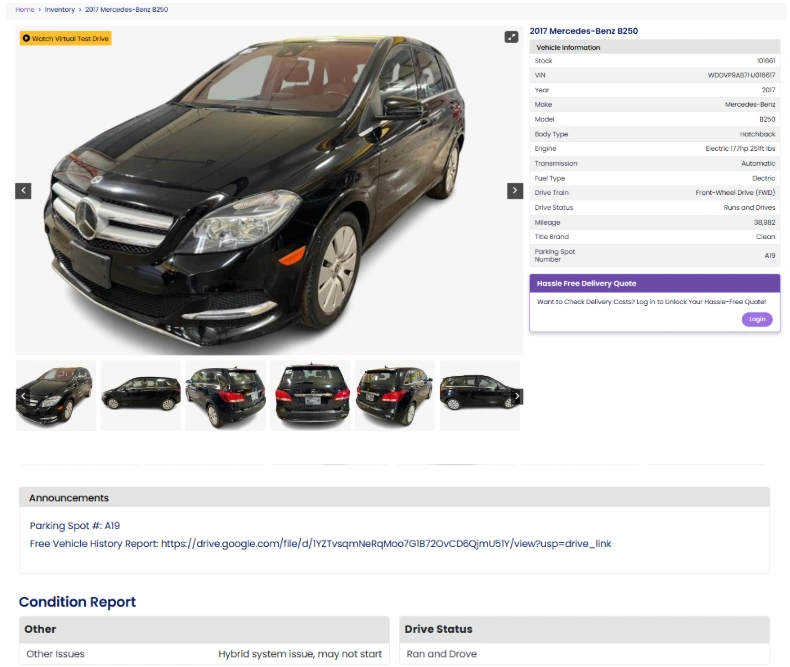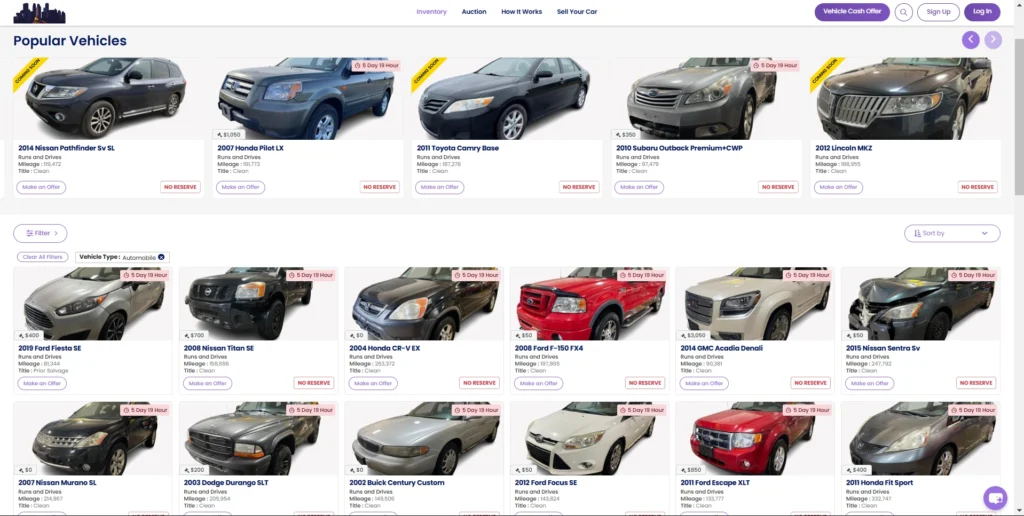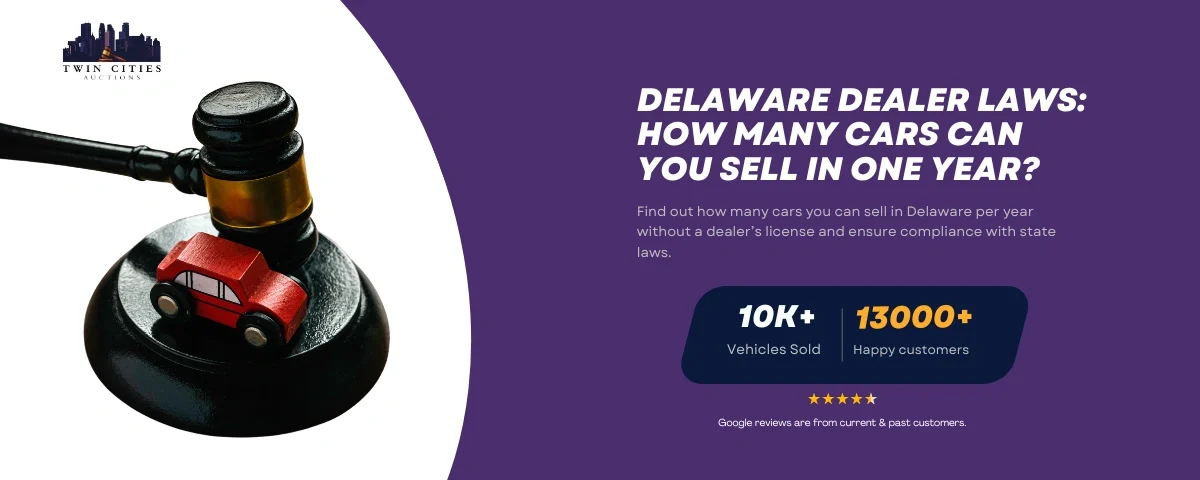If you’re curious about the limits on car sales in Delaware and the steps you need to take to expand your vehicle business, you’re in the right place. In Delaware, private sellers are legally permitted to sell only up to 4 vehicles per year before they must obtain a dealer license.
With nearly 170,000 registered vehicles in the state, this strict cap plays a significant role in shaping the local auto sales market. This article explores Delaware’s legal framework and practical insights, detailing the restrictions for unlicensed sellers and the benefits of becoming a licensed dealer.
Whether you’re a casual seller or planning to grow your business, understanding these rules is essential for navigating Delaware’s competitive automotive market.

Key Takeaways
- Delaware law permits unlicensed individuals to sell a maximum of 4 vehicles per calendar year.
- Licensed dealers who meet all regulatory requirements can sell an unlimited number of cars.
- Dealer licensing involves strict documentation, a proper business location, bonding or insurance, and adherence to consumer protection measures.
- Auctions help sellers move inventory quickly while offering buyers market-driven prices and a transparent process.
Understanding Delaware Dealer Laws
Overview of Regulations
Delaware has established a clear legal framework that differentiates casual sellers from professional dealers. According to the Delaware Division of Motor Vehicles (DMV), unlicensed individuals are allowed to sell up to four vehicles per calendar year. This limitation is intended to prevent hobby sales from unintentionally turning into unregulated business activity.
Once individuals exceed this limit, they are required to obtain a dealer license through the Delaware DMV. Licensed dealers are not subject to a statutory cap on the number of vehicles they can sell, provided they meet the state’s regulatory requirements, including proper business registration, location compliance, and recordkeeping standards.
Consumer Protection Measures
The law mandates strict recordkeeping and full disclosure in every transaction to protect both sellers and buyers. These regulations cover advertising standards, warranty disclosures, and thorough documentation practices.
Such measures ensure that all vehicle purchases come with accurate information, reducing the potential for misunderstandings and fraudulent activity.
Dealer Licensing Requirements in Delaware
Steps for Licensing
Securing a dealer license in Delaware involves several essential steps. Applicants must gather necessary documentation, provide proof of a compliant business location, and meet financial criteria.
Completing the application process with the Delaware Department of Motor Vehicles, along with passing background checks and consumer protection training, are all part of the journey toward becoming a licensed dealer.
Benefits of Licensing
Obtaining a dealer license not only removes the 4-vehicle cap but also grants access to wholesale pricing, industry networks, and enhanced consumer trust.
With a license, sellers gain legal safeguards that support a sustainable business model in the competitive vehicle sales market. This transition is beneficial for those aiming for long-term growth and more significant market participation.
Licensed vs. Unlicensed Vehicle Sales
| Aspect | Unlicensed Seller (Up to 4 Vehicles/Year) | Licensed Dealer (Unlimited Sales) |
| Sales Limit | Maximum of 4 vehicles per calendar year | No statutory cap on vehicle sales |
| Licensing Requirements | Basic compliance with state laws | Extensive application process, bonding, and inspections |
| Access to Wholesale Pricing | Limited to retail transactions | Eligibility for dealer-specific pricing |
| Consumer Protection | Basic disclosure mandates | Comprehensive standards and regular audits |
| Recordkeeping | Informal documentation | Formal recordkeeping and periodic reviews |
Market Insights on Delaware Car Sales
Market Trends
Delaware’s vehicle market continues to evolve as both new and used car sales see steady growth. A stable economy and consistent consumer demand drive the market, which in turn highlights the importance of adapting to regulatory standards.
Sellers and buyers alike benefit from an environment that emphasizes transparency and consumer protection.
Sales Data Overview
Recent trends in Delaware indicate an upward shift in vehicle sales numbers, reflecting an increase in consumer confidence and a robust market. The table below outlines vehicle sales trends over recent years, illustrating the dynamic environment in which sellers operate.
| Year | Number of Vehicles Sold | Percentage Growth |
| 2018 | 3,200 | 2.8% |
| 2019 | 3,400 | 6.3% |
| 2020 | 3,550 | 4.4% |
| 2021 | 3,750 | 5.6% |
| 2022 | 3,950 | 5.3% |
Why Auctions Are a Smart Choice for Vehicle Sales
Selling cars at an auction for resale is becoming an increasingly popular option for dealers and private sellers alike. Auctions, like Twin Cities Auctions, offer a streamlined and competitive way to buy and sell cars.
- Competitive Pricing: Auctions like Twin Cities Auctions allow sellers to set a competitive price and reach a broad pool of buyers.

- Transparency: Every vehicle listed at the auction comes with detailed information, making the buying process transparent for both parties.

- Wide Inventory: Auctions have a large variety of vehicles available

Quick Turnaround: Auctions offer fast and efficient sales, helping sellers move inventory quickly.
Vehicle Auctions vs. Traditional Dealership Sales
| Aspect | Vehicle Auctions | Traditional Dealership Sales |
| Sales Cycle | Rapid, often completed within hours | Typically longer due to extended negotiations |
| Price Determination | Dynamic and market-driven through competitive bidding | Fixed or negotiated prices that may lag behind trends |
| Inventory Turnover | High turnover with reduced holding costs | Slower movement leading to higher inventory expenses |
| Transparency | Regulated, with clear auction procedures | Varies between dealerships, sometimes less transparent |
| Buyer Engagement | Interactive, competitive bidding environment | One-on-one negotiations that may delay decisions |
Practical Tips for Sellers and Dealers
Whether you are a private seller or an established dealer, here are some tips to help you stay compliant with Delaware’s laws and improve your vehicle sales:
- Keep Track of Your Sales: If you’re not licensed, keep track of the number of cars you sell. Exceeding the limit of five without a license can lead to penalties.
- Know the Laws: Stay updated on the latest dealer laws and licensing requirements in Delaware.
- Utilize Auctions: Auctions provide an opportunity to spot a great deal which can be useful for sellers looking to buy vehicles to resell in Delaware.
- Maintain Detailed Records: Always keep accurate records of each vehicle sold, including the sale price and buyer’s information, in case of any inquiries.
Conclusion
Understanding Delaware Dealer Laws is crucial for anyone involved in vehicle sales. With a strict limit of 4 vehicles per year for unlicensed sellers and the option to remove that cap through dealer licensing, you have clear guidelines to follow.
Whether you choose to operate as a licensed dealer or leverage the rapid turnover of vehicle auctions, knowing the rules is the first step toward a successful business venture.
As the automotive market evolves, staying informed about legal requirements and market trends will lead to improved customer satisfaction and profitability. Aligning your strategy with these insights can help ensure long-term success in the industry.
Your Next Car is Just a Click Away at Twin Cities Auctions!
Twin Cities Auctions brings the convenience and excitement of car auctions directly to your screen. Their online platform is designed to cater to a diverse audience, offering an extensive range of vehicles to suit all tastes and budgets.
Whether you are a seasoned car seller or a first-time buyer, the streamlined process and competitive pricing make it easy to find exactly what you need. Enjoy an efficient, hassle-free experience and discover the advantages of auction-based sales.
Looking for more options? Explore our comprehensive list of all available car auctions across the United States. Your next deal might be just a click away!
FAQ
What is the maximum number of vehicles an unlicensed seller can sell in Delaware in one year?
In Delaware, unlicensed sellers can sell up to 4 vehicles per calendar year. The state enforces this limit to prevent unauthorized business activity and protect consumers.
How does obtaining a dealer license benefit vehicle sellers in Delaware?
A dealer license removes the 4-vehicle cap and provides access to wholesale pricing, a broader network of buyers, and additional legal safeguards. This enhances business credibility and facilitates unlimited vehicle sales.
What are the key steps required to obtain a dealer license in Delaware?
The process includes gathering necessary documentation, securing a compliant business location, completing background checks, and fulfilling financial requirements. Applicants must work with the Delaware Department of Motor Vehicles to complete the process.
How do Delaware Dealer Laws protect consumers?
These laws enforce strict recordkeeping, advertising standards, and warranty disclosures. Such measures ensure that buyers receive complete and accurate information about every vehicle, reducing the risk of fraud or misrepresentation.
What advantages do vehicle auctions offer over traditional dealership sales?
Auctions provide a faster sales cycle with market-driven pricing through competitive bidding. They offer transparency and reduced holding costs, making it an efficient alternative for both sellers and buyers.
Why are Twin Cities Auctions a preferred option for vehicle sales in Minnesota?
Buyers know Twin Cities Auctions for their extensive inventory, competitive pricing, transparent processes, and convenient location. They offer a well-organized platform that streamlines transactions and enhances customer satisfaction.
Is it possible for an unlicensed seller to transition into a licensed dealer in Delaware?
Yes, unlicensed sellers can transition to licensed dealers by meeting the state’s requirements. This process involves a detailed application, proof of a proper business location, and compliance with all regulatory standards.
What market trends currently influence vehicle sales in Delaware?
Recent trends indicate steady growth in both new and used car sales, driven by strong consumer confidence and economic stability. This dynamic market environment creates opportunities for sellers who adhere to regulatory requirements.
Source Links
https://www.dmv.delaware.gov
https://legis.delaware.gov
https://www.nhtsa.gov
https://www.edmunds.com
https://www.autotrader.com
https://www.cars.com
https://www.nada.org
https://www.dealertraining.com


